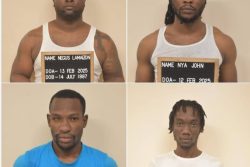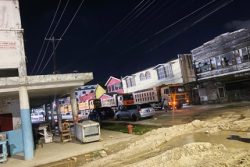BAGHDAD, (Reuters) – A bomb killed 61 people yesterday at a market in eastern Baghdad’s volatile Sadr City slum, police said, six days before U.S. combat troops are due to withdraw from Iraqi towns and cities.
About 116 people were wounded by the blast in the mostly Shi’ite Muslim area in one of Iraq’s worst attacks this year. A witness said the explosion tore through a part of the Mraidi Market where birds are sold, setting stalls ablaze.
Bloodshed has dropped sharply across Iraq in the past year, but militants including Sunni Islamist al Qaeda continue to launch deadly car and suicide bombings aimed at undermining the government and reigniting sectarian conflict.
Yesterday’s market bombing came just four days after the U.S. military formally handed control to local forces of Sadr City, where U.S. and Iraqi forces fought fierce battles against Shi’ite militiamen in the spring of 2008.
Three school students died in another bombing in Sadr City on Monday, one of a string of blasts that killed 27 people across Iraq that day.
On Saturday, at least 73 people died in suicide truck bombing outside a mosque in Kirkuk province.
High death tolls remain common despite the fall in overall violence. Two female suicide bombers killed 60 people outside a Shi’ite shrine in the capital this April, just days before twin car bomb blasts killed 51 people in Sadr City.
Such attacks cast doubt on the ability of local security forces, rebuilt from the ground up after they were dissolved by U.S. officials in 2003, to vanquish a stubborn insurgency on their own.
Sadr City is a bastion of support for fiery anti-American Shi’ite cleric Moqtada al-Sadr and his Mehdi Army militia. But the Mehdi Army has frozen most activities in the past year and Iraqi government forces have retaken control of the area.
Analysts say attacks are likely to intensify ahead of a parliamentary election in January. Iraqi Prime Minister Nuri al-Maliki has built his reputation on reducing the bloodshed, and has lauded the partial withdrawal of U.S. troops.








